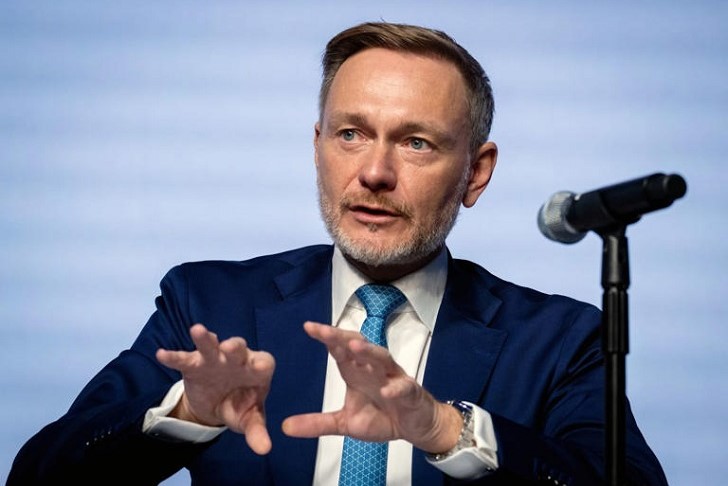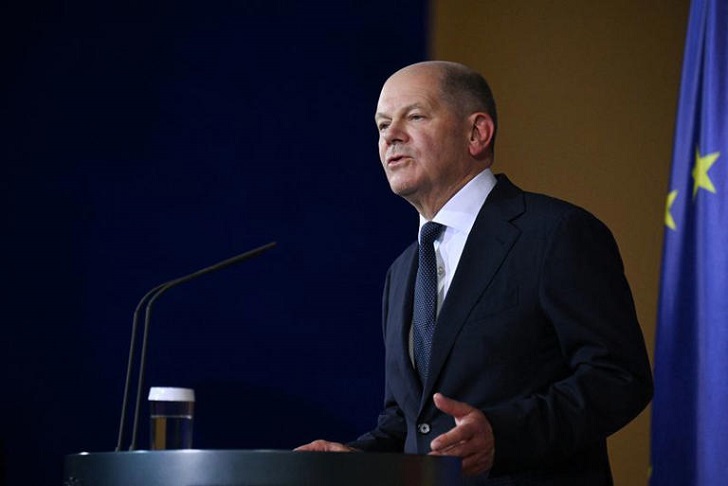The dismissal of German Finance Minister Christian Lindner has sent shockwaves through Germany’s political landscape. German Chancellor Olaf Scholz announced Lindner’s firing in a public address, stating it was “necessary to prevent harm to our country.” This unexpected decision has created significant uncertainty within Germany’s coalition government, threatening to destabilize the Social Democratic Party (SPD), Free Democratic Party (FDP), and Green Party’s alliance.
German Finance Minister’s Dismissal Sparks Political Tensions
The coalition, known as the “traffic light” coalition due to its parties’ colors, has been struggling to maintain unity amidst conflicting economic strategies. Lindner of the FDP pushed for major tax cuts and an economic restructuring, contrasting sharply with the SPD and Green Party's policies. His recent 18-page economic proposal, titled “Germany’s economic turnaround,” added fuel to this fire by calling for a fundamental shift in fiscal policy, a move his coalition partners found divisive.
The SPD and Green Party members criticized Lindner’s plan as a step away from their shared goals, seeing it as catering more to FDP supporters than to Germany’s broader interests. This document, dubbed by German media as a “coalition divorce paper,” set the stage for escalating tensions. Scholz’s decision to remove Lindner directly responds to this discord, with the Chancellor emphasizing that “there is no trust basis for any future cooperation” with Lindner.

DPA International | MSN | Lindner of the FDP pushed for major tax cuts and economic restructuring, which contrasted sharply with the SPD and Green Party's policies.
Political Fallout and Coalition Collapse
Following Lindner’s dismissal, the FDP announced its departure from the coalition, leaving Chancellor Scholz’s administration hanging by a thread. The Green Party, led by Robert Habeck, remains in the coalition but faces intense pressure as it attempts to balance its alliance with the SPD. Scholz has called for a confidence vote on January 15 to stabilize the government temporarily, which could determine whether snap elections might occur by March.
The stakes are high for Scholz, who has stated his commitment to pushing critical legislation, particularly around economic and defense issues, before the January vote. He has hinted at working with opposition leader Friedrich Merz of the Christian Democratic Union (CDU) to secure support, underscoring his belief that “the economy cannot wait until after the elections.” The potential collaboration with Merz could shift Germany’s political dynamics even further.
Economic Disputes Fuel the Coalition Crisis
The heart of this political upheaval lies in the diverging views on Germany’s economic future. Lindner’s dismissal underscores his opposition to Scholz’s handling of fiscal policies, particularly regarding debt and spending limits. Lindner openly criticized Scholz for allegedly pressuring him to suspend Germany’s “debt brake,” a constitutional restriction on government borrowing, which Lindner firmly opposed. He expressed concerns that loosening borrowing limits would weaken Germany’s economic stability and international reputation.
In response, Scholz countered that Germany must remain financially agile, especially with potential changes in the United States government, which could impact Germany’s economy. He argues that fiscal flexibility is essential, given the challenges Germany faces domestically and globally. Lindner’s resistance to abandoning the debt brake has only intensified the ideological divide within the coalition, with each side trading accusations over policy priorities.

Thomas Escritt | MSN | Scholz argues that fiscal flexibility is essential, given the challenges Germany faces domestically and globally.
Political Backlash and Public Reactions
The political turmoil has drawn responses from across the spectrum. The far-right Alternative for Germany (AfD) party, which has been gaining influence, celebrated the coalition’s fragmentation, framing it as a “liberation” from the so-called “progressive coalition.” Alice Weidel, the AfD leader, criticized the SPD, FDP, and Green coalition for leading Germany “to the brink of economic ruin,” adding that the coalition’s end was “overdue.” Weidel’s comments highlight how the current political environment has allowed opposition parties to capitalize on the chaos.
The public response has been mixed. Some supporters of Lindner view his firing as a political maneuver that undermines Germany’s economic interests. Conversely, supporters of Scholz and the SPD argue that his decision demonstrates strong leadership aimed at protecting Germany’s financial stability. Lindner’s dismissal and the coalition’s resulting instability have underscored the complexities and pressures of Germany’s political landscape, where alliances are often fragile.
This political upheaval arrives at a challenging time for Germany, with economic uncertainties stemming from both domestic policies and international influences. As Germany’s coalition government appears close to collapse, the public remains uncertain about the country’s political future.











